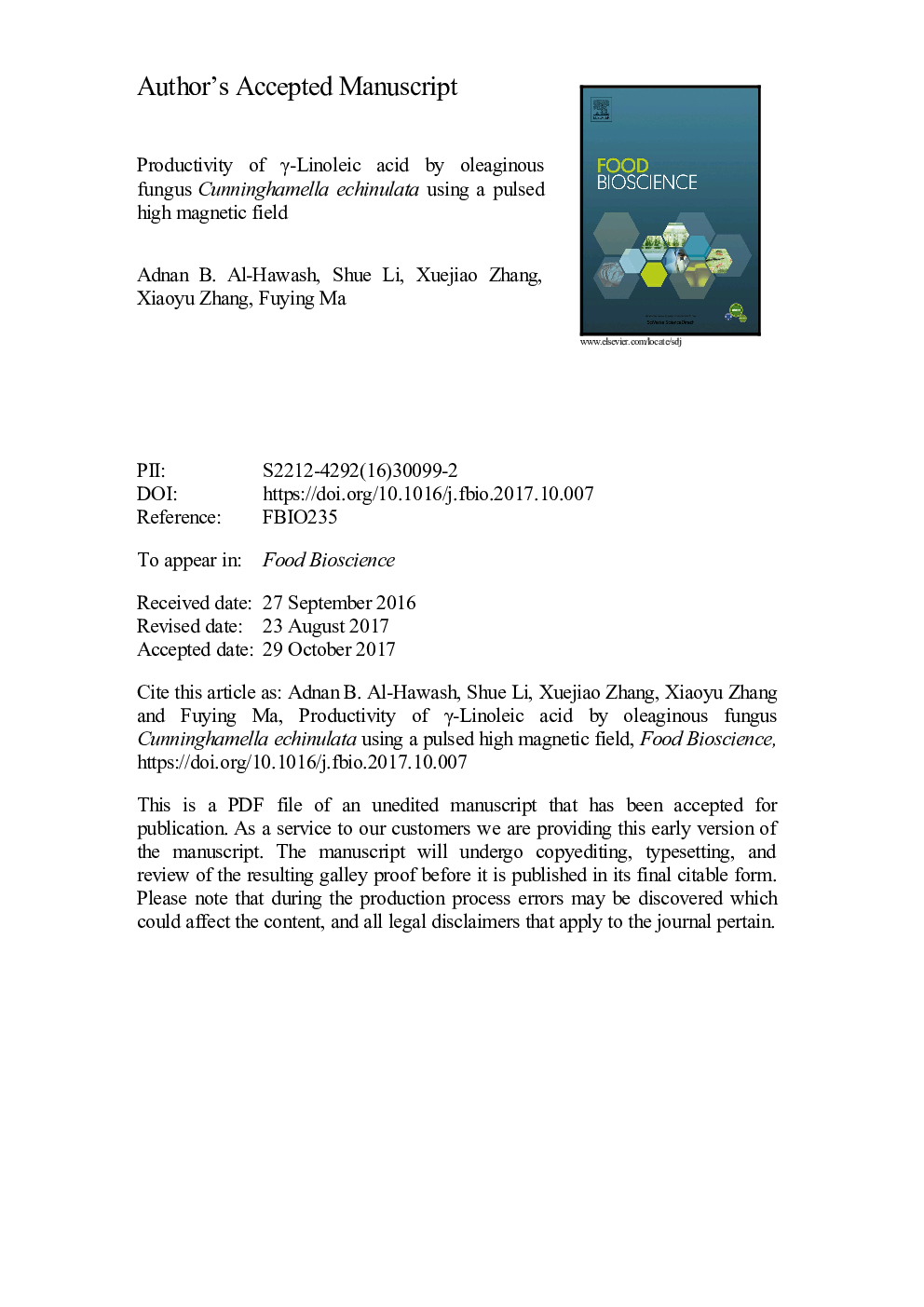| Article ID | Journal | Published Year | Pages | File Type |
|---|---|---|---|---|
| 6488935 | Food Bioscience | 2018 | 26 Pages |
Abstract
γ-Linolenic acid (GLA) plays a crucial role in brain function and normal growth and development. High percentage of the population cannot effectively produce GLA, resulting in the use of GLA dietary supplements. Several oleaginous fungi can produce low level of GLA. The present study aimed to improve the production of GLA using physical mutagenesis. Spore suspensions of Cunninghamella echinulata were treated with pulsed high magnetic field. A total of 64 strains were isolated and screened using Nile red staining and fluorescence detection. Three mutants were selected after fermentation screening. GLA yields of Mut-29, Mut-15, and Mut-64 increased by 46.2%, 23.1%, and 19.2%, respectively, compared with that of the parent strain. Biomass, lipid content and yield, GLA content, and GLA yield of Mut-29 increased significantly (P < 0.05) by 3.60%, 22.2%, 26.4%, 15.4%, and 46.2%, respectively, compared with those of the parent strain. The effects of different factors on lipid and GLA production were investigated to estimate the stability of the mutants. GLA yields from Mut-29 were 1.31 g Lâ1 and 1.28 g Lâ1 in medium with 1% soybean powder or 0.5% potassium nitrate, respectively. Result indicates that mutagenesis induced by pulsed high magnetic field can effectively improve GLA yield in C. echinulata.
Keywords
Related Topics
Physical Sciences and Engineering
Chemical Engineering
Bioengineering
Authors
Adnan B. Al-Hawash, Shue Li, Xuejiao Zhang, Xiaoyu Zhang, Fuying Ma,
